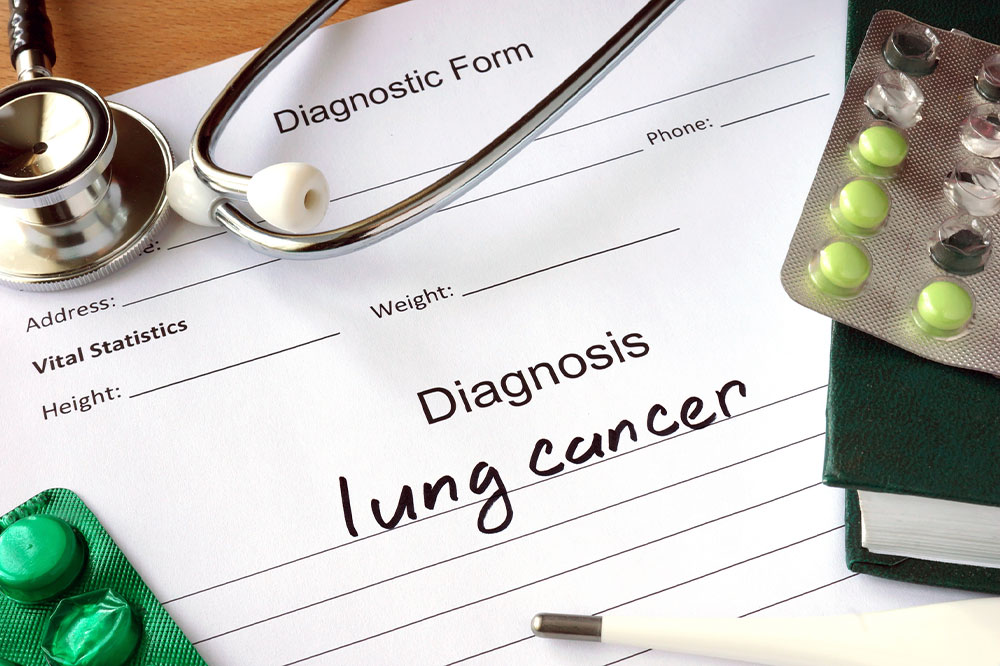3 crucial tips for managing lung cancer

Cancer may develop in the lungs due to radiation therapy, asbestos, and carcinogens. Factors such as genetics may also trigger the development of lung cancer. There are more than 236,000 new cases of this disorder and its types every year. Those who develop lung cancer may notice symptoms including chest pains, hoarseness, and bone pain that turn severe with time. Here are three tips for one to manage lung cancer.
Start a treatment plan
The first tip for coping with lung cancer is to start a treatment plan as soon as the condition is diagnosed. There are two common types of lung cancer. Small cell lung cancer (SCLC) and non-small cell lung cancer (NSCLC).
SCLC therapies
About 20 of every 100 people with lung cancer are diagnosed with SCLC. This type of cancer is also fast growing compared to other lung cancer types. Preferred treatments for small cell lung cancer include chemotherapy, which involves eliminating lung cancer cells that may have spread outside the lung. Furthermore, radiation therapy is used for treating small cell lung cancer when the tumor is limited to the lung or areas inside the chest. The two therapies are often combined in such cases.
Prescription for NSCLC
NSCLC is a more common type of lung cancer that spreads gradually and much slower than small cell lung cancer. GAVRETO® (pralsetinib) helps treat adults affected with NSCLC. The treatment is also administered to adults and kids 12 years of age and older, affected with advanced thyroid cancer or when the condition has spread. The capsule is given by mouth once daily as prescribed by a healthcare expert. The expert will also conduct a test to assess if Gavreto is suitable for the patient.
Eat appropriate meals
Apart from getting on a treatment plan, it is equally important for a person to eat the right foods. Doing so will help boost their immune system and fight cancer symptoms. One should consume foods rich in proteins like eggs, beans, soy products, nuts, and low-fat dairy to keep the organs healthy. Adding edibles like fruits and vegetables to meals can nourish the body with phytonutrients and antioxidants. Such compounds are essential to prevent and reduce cell damage. Avocados, seeds, olive oil, and nuts are a few sources of omega-3 fatty acids and other healthy fats. These fats are known to complement the nervous system and brain. Eating foods abundant in omega-3 fatty acids can also reduce inflammation. Introducing meals rich in carbohydrates can help an individual build their energy levels. Building energy levels is especially useful after one undergoes treatments for their health condition. Healthy sources of carbohydrates include oatmeal, brown rice, whole-wheat bread, and whole-grain pasta.
One should also avoid foods that may worsen the symptoms of lung cancer. These foods may also trigger side effects if the person is currently on treatment for their condition. A few foods to avoid include salty foods, processed meat, soda, fried foods, and cold cuts. These foods contain preservatives and other compounds that can trigger symptoms of lung cancer. For example, the sodium content in salty foods may cause fluid retention and result in shortness of breath in patients with lung complications.
Make lifestyle changes
The lifestyle one follows plays an important role in their recovery or cancer treatment. A few ways to manage cancer symptoms are as follows:
Managing stress levels
By managing stress levels, one can regulate mental and physical health. Relaxation techniques like mediation, guided imagery, and yoga can improve how they cope with cancer symptoms. One must take a few moments in the day to practice these techniques to be mindful of their surroundings.
Sleeping appropriately
Getting a sufficient amount of sleep is imperative when it comes to patients with lung cancer. Sleeping for seven to eight hours each night will improve the individual’s coping mechanism, weight, memory, control, health, and focus. To get proper sleep, one must follow a bedtime routine and keep their room as dark as possible. Moving to cooler rooms can help improve one’s quality of sleep. Furthermore, avoiding excessive time on an electronic device before bed and steering clear of stimulants like caffeine and sugar will ensure a good night’s rest.
Regular exercise
Indulging in various forms of exercises may help a person reduce fatigue, build their strength, and stay in shape. Exercise is extremely useful when a person is undergoing treatment for cancer or when they complete therapy. Developing a fitness routine, including strength exercise and aerobic activities, are a few ways to maintain overall health. Simple activities like walking or balancing the time one spends sitting or standing are also beneficial exercise routines.
Seeking support
Being affected by any form of cancer or other diseases can be overwhelming for anyone. So to improve one’s ability to cope and live with their condition, one must seek appropriate support from others. Enrolling in a social support group can help one learn more about their condition and share their feelings with others who have a similar diagnosis. One can also speak to their family members or friends, which is an ideal way to manage the condition.









